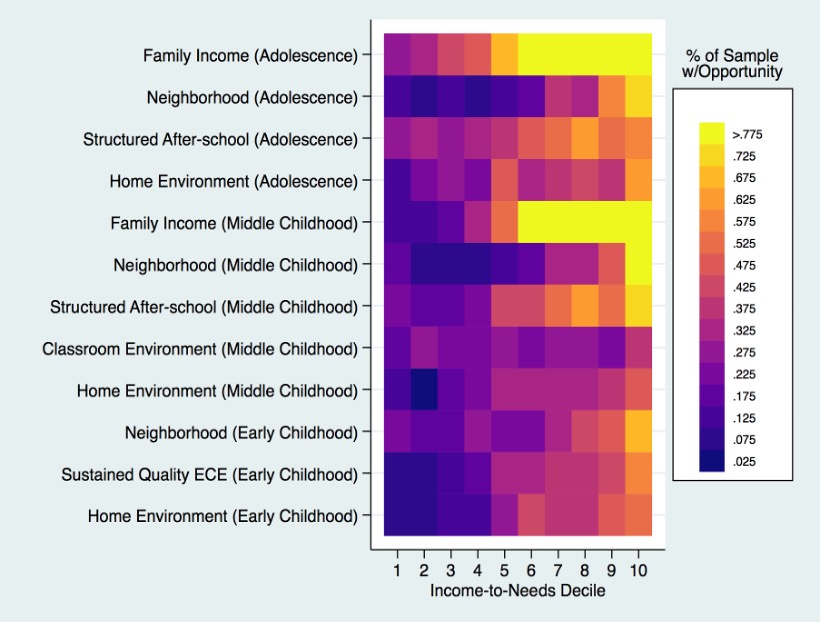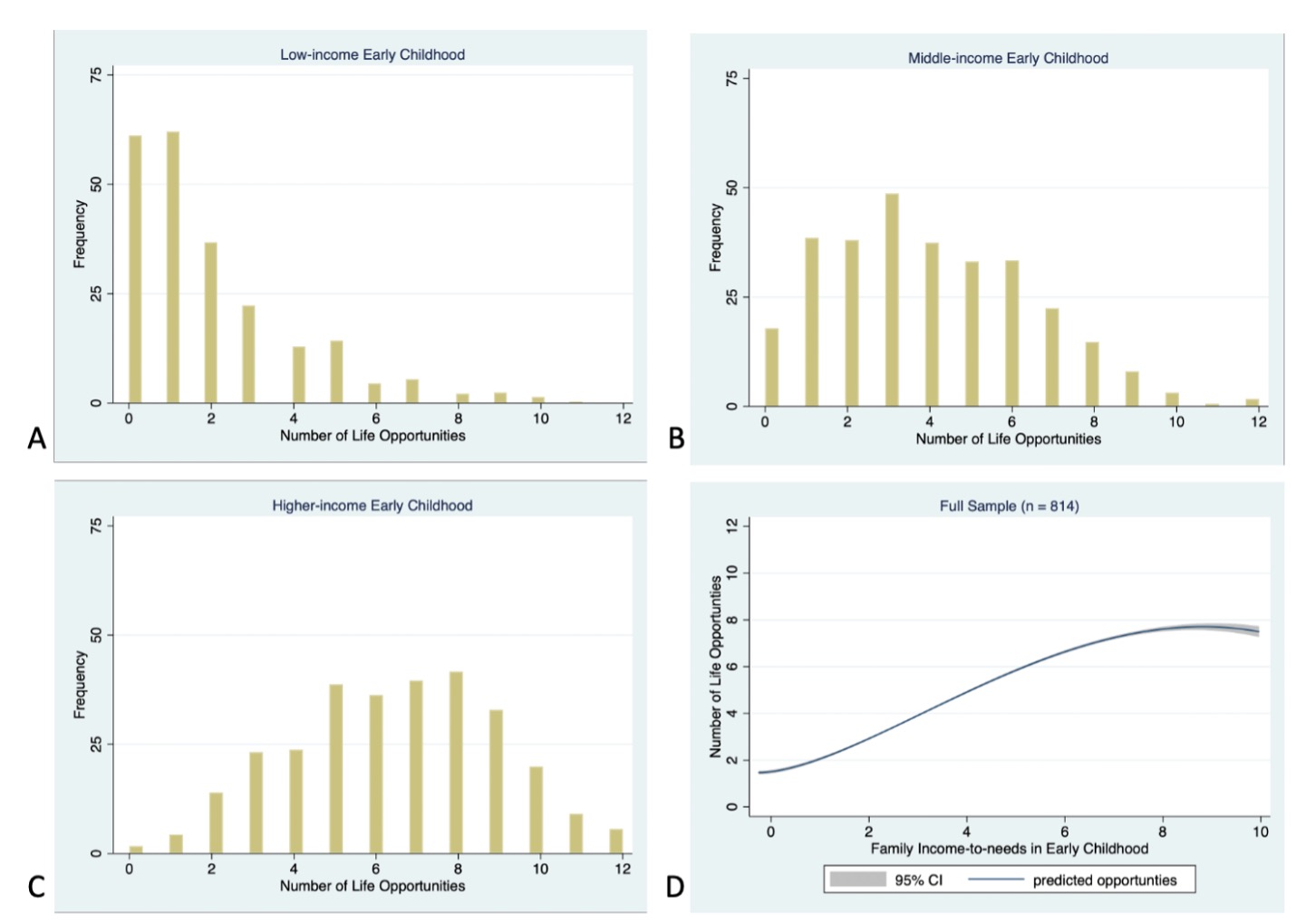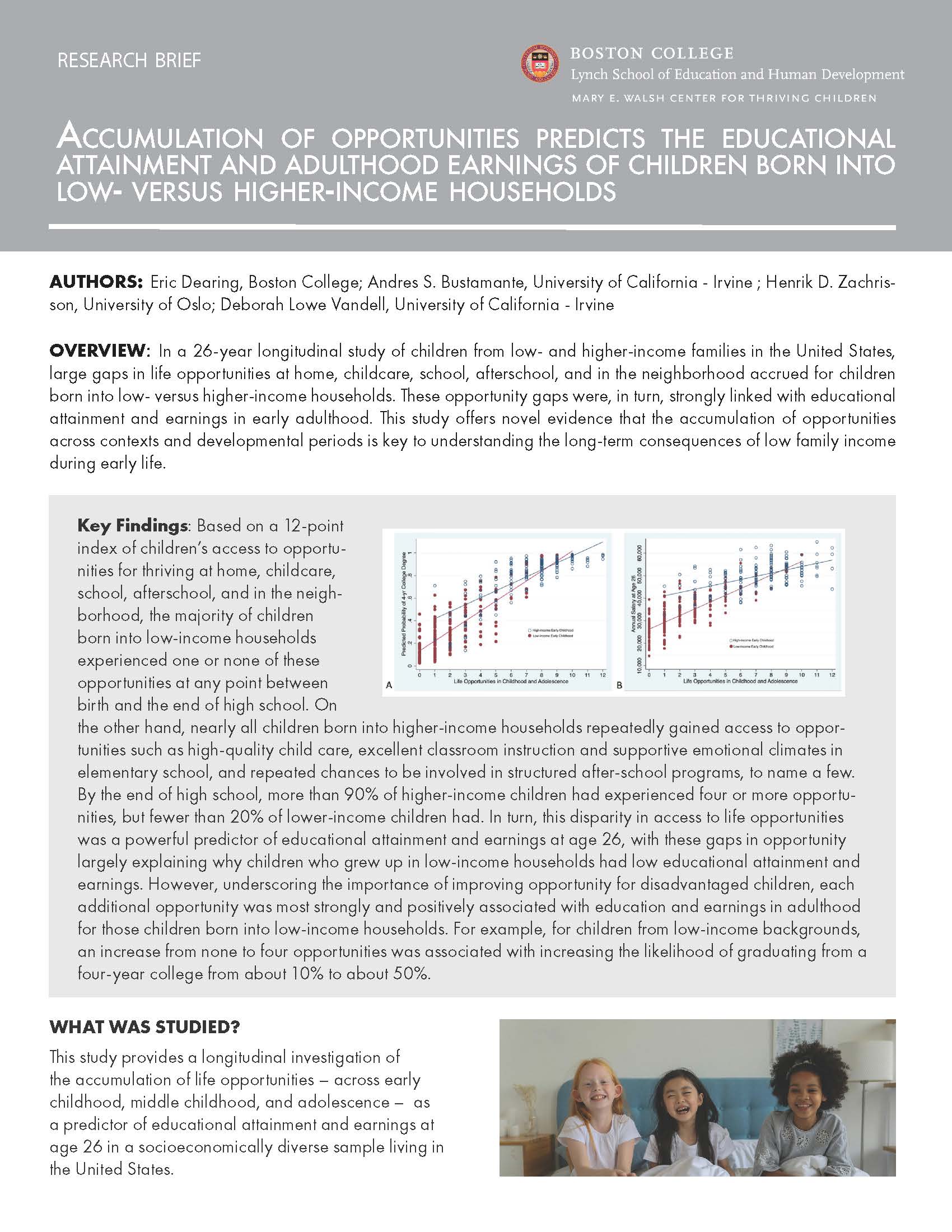Research Paper: Accumulation of opportunities predicts the educational attainment and adulthood earnings of children born into low- versus higher-income households
Authors: Eric Dearing, Boston College; Andres S. Bustamante, University of California - Irvine ; Henrik D. Zachrisson, University of Oslo; Deborah Lowe Vandell, University of California - Irvine
Overview
In a 26-year longitudinal study of children from low- and higher-income families in the United States, large gaps in life opportunities at home, childcare, school, afterschool, and in the neighborhood accrued for children born into low- versus higher-income households. These opportunity gaps were, in turn, strongly linked with educational attainment and earnings in early adulthood. This study offers novel evidence that the accumulation of opportunities across contexts and developmental periods is key to understanding the long-term consequences of low family income during early life.
Eric Dearing, professor at Boston College, Executive Director of the Mary E. Walsh Center for Thriving Children.
Key Findings
Based on a 12-point index of children’s access to opportunities for thriving at home, childcare, school, afterschool, and in the neighborhood, the majority of children born into low-income households experienced one or none of these opportunities at any point between birth and the end of high school. On the other hand, nearly all children born into higher-income households repeatedly gained access to opportunities such as high-quality child care, excellent classroom instruction and supportive emotional climates in elementary school, and repeated chances to be involved in structured after-school programs, to name a few. By the end of high school, more than 90% of higher-income children had experienced four or more opportunities, but fewer than 20% of lower-income children had. In turn, this disparity in access to life opportunities was a powerful predictor of educational attainment and earnings at age 26, with these gaps in opportunity largely explaining why children who grew up in low-income households had low educational attainment and earnings. However, underscoring the importance of improving opportunity for disadvantaged children, each additional opportunity was most strongly and positively associated with education and earnings in adulthood for those children born into low-income households. For example, for children from low-income backgrounds, an increase from none to four opportunities was associated with increasing the likelihood of graduating from a four-year college from about 10% to about 50%.



In The News
Why Kindergarten Matters for Children Growing Up in Poor Families - University of Oslo, 9.17.24
‘Opportunities,’ not poverty alone, predict later-life success for children - Hechinger Report, 9.26.24
Kindergarten matters more for children from disadvantaged families, researchers argue - The Sector, 10.1.24

